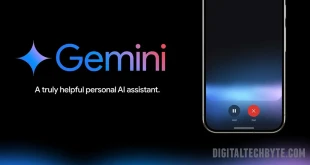Free VPN apps on Android may seem tempting, but many come with hidden risks—data tracking, security loopholes, and even spyware. Here’s why you should think twice before installing them.
Why Using Random Free VPN Apps on Android Can Be a Costly Mistake
In today’s hyper-connected world, privacy is no longer a luxury—it’s a necessity. This is especially true for Android users who rely on VPNs (Virtual Private Networks) to secure their browsing, hide their IP addresses, and access geo-restricted content. The problem? Many people download the first free VPN app they find on Google Play without thinking twice. And that’s where the trouble begins.
Recent security audits reveal that a significant number of free Android VPNs are riddled with vulnerabilities, questionable data policies, and—in some alarming cases—malware. While these apps promise anonymity, they often do the exact opposite: they collect your personal information, track your browsing behavior, and sometimes resell this data to advertisers or third parties.
The Hidden Cost of “Free” Privacy
Running a VPN service isn’t cheap. Servers, security infrastructure, and bandwidth all cost money. So when a provider offers a completely free service, it’s worth asking: how are they making money? The answer often lies in data monetization. According to a 2025 report by Cybersecurity Ventures, over 40% of free VPN apps on Android were found to log user activity, despite claiming not to. Some even included SDKs that transmitted this data to offshore servers—far beyond the user’s control.
Security Loopholes and Malware Threats
One unsettling discovery from AppCensus security researchers was that several popular free VPN apps contained malicious code disguised as background services. These could inject ads, access device storage, or even install additional spyware without consent. In other cases, poorly implemented encryption meant user traffic was not truly secure, leaving data exposed to hackers on public Wi-Fi networks.
Cybersecurity expert Mark Nance warns: “A bad VPN is worse than no VPN at all. It gives users a false sense of security while putting them in greater danger.”
Privacy Policies You Never Read
Even when free VPN apps pass a malware scan, their privacy policies are often deliberately vague. Some state openly that data may be “shared with partners for service improvement,” which, in plain English, means it can be sold to advertisers. Others store connection logs for weeks or months—completely defeating the purpose of anonymous browsing.
Safer Alternatives for Android Users
You don’t have to abandon VPNs entirely—just choose wisely. Opt for reputable, well-reviewed paid services that are transparent about their operations, such as ExpressVPN, ProtonVPN, or NordVPN. Many premium VPNs now offer affordable monthly plans, and some even provide limited free tiers that still respect privacy. Before installing any VPN, check its privacy policy, location of headquarters (outside invasive jurisdictions like the Five Eyes alliance), and independent security audits.
The Takeaway
It’s easy to be tempted by a free download, but with VPNs, the price you pay with your personal data is far higher than a monthly subscription fee. So, the next time you see a flashy “100% Free Unlimited VPN” ad on Android, think twice—your privacy and digital safety are worth the investment.
 Digital Tech Byte Latest Technology News
Digital Tech Byte Latest Technology News





